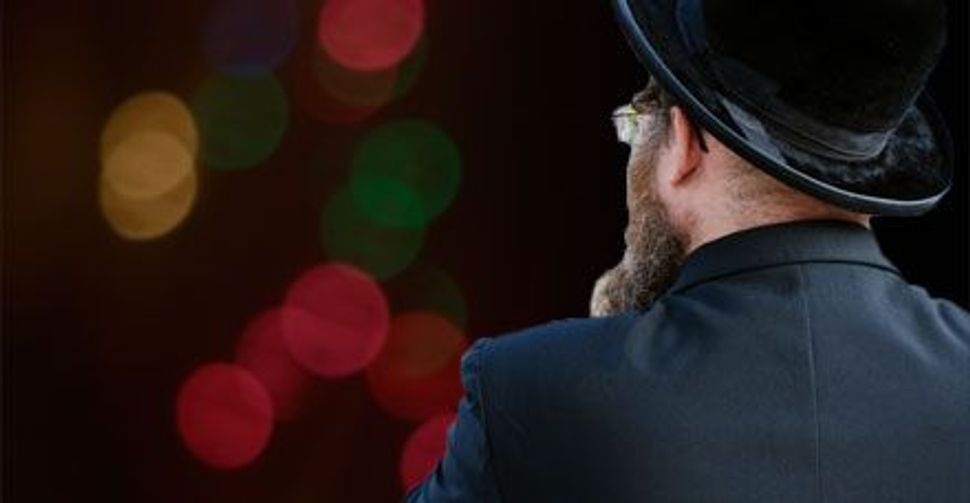Our Stance on Homosexuality

Image by istock
The chief rabbi of Amsterdam, Aryeh Ralbag, was suspended in January for signing a document stating that one can be “healed” from homosexuality. Though he was eventually reinstated after apologizing to the community for having signed using his official title, the episode does provide an opportunity to consider exactly what the traditional Orthodox view on homosexuality is, and whether Ralbag was really saying anything all that scandalous.
Whether homosexuality is fixed or changeable remains an open question. There are well-informed people on either side of the issue, but as of yet no incontrovertible proof of a “gay gene.” Whether the Jewish religious tradition is fixed or changeable, however, is not arguable — at least not for Torah-loyal Jews.
The Torah explicitly prohibits homosexual contact (whether by the homosexually inclined or by anyone else). There have been Herculean efforts in recent years, even by some nominally “Orthodox” Jews, to cast the Torah’s explicit prohibition of male homosexual activity as meaning something other than what Jewish tradition has understood it to mean for several thousand years. But those millennia in the end are what matter to Jews concerned about what the Torah says to them rather than what they would like the Torah to say.
The Torah does not command hatred of homosexuals or label people who engage in homosexual activity as inherently evil. People who transgress the Torah do not forfeit their humanity or, if Jewish, their membership in the Jewish people, nor are they unworthy of others’ care and compassion. And those who are inclined to sin but do not succumb to it are praiseworthy.
But there can be no denying that the Torah in no uncertain terms forbids homosexual acts and, with equal clarity, sanctions only the union of a man and a woman in matrimony.
Modern-day society’s embrace of homosexual expression is neither the first nor the only clash between contemporary values and traditional Jewish religious ones. And the Jewish reaction to the embrace of such zeitgeists has always been to remember that we are the proud descendants of our forefather Abraham Ha’Ivri, called the “other sider” because “the entire world was on one side” of a conceptual river and he was “on the other.”
The document signed by Ralbag — along with scores of other rabbis and health professionals — counsels “love and compassion” toward those with homosexual inclinations, but also states clearly that the Torah forbids homosexual activity. Moreover, it asserts that homosexual inclinations can be “modified and healed,” which was apparently what brought the lay board of the Amsterdam Jewish community to initially suspend Ralbag.
Mainstream medical professionals deem psychological counseling aimed at helping people modify their sexual orientations pointless, at best, and counterproductive, at worst. There have even been reports of abusive behavior in the guise of such therapy.
But other mental health care professionals insist that such interventions, conducted responsibly, are not only safe, but also (at least for the highly motivated) effective. And then there are the inconvenient numbers of actual human beings who testify that the therapy has helped them realize their goal to live exclusively heterosexual lives. I have met one such individual — an intelligent, sensitive and even-keeled man — and have corresponded with therapists who have helped dozens of patients control homosexual inclinations and, as a result, live happy, fulfilled, Torah-faithful lives.
Procreation in its traditional form, moreover, is not only a mitzvah, a commandment, but also a Jewish high ideal. Understandably, a Torah-observant Jew challenged by same-sex attraction, even if he is successfully overcoming the urge to give vent to his desires, feels torn between what his interior emotional landscape is telling him and what his Torah is. And so it is only logical that he seek ways of alleviating that tension. If there is a possibility of therapy that will enable him to fully lead a Torah-true lifestyle, then such therapy is precisely what he should pursue.
Unfortunately, though, instead of receiving support and encouragement from the broader Jewish community, such Jews all too often face a barrage of cultural critics and media that is badgering them to give up on their goal of working to mitigate their homosexual orientation.
Those critics and media begin with the premise that any human urge is inherently legitimate (it’s human, after all!) and that there is no reason for anyone to seek to change a sexual orientation. But the premise of someone dedicated to Torah is that God’s will matters most and has been communicated to mankind.
A Torah-loyal Jew with homosexual inclinations could opt to live a celibate life. Were that the only option, he would be a truly righteous Jew to do so. But if there are in fact avenues to explore that might lead to the fulfillment (both emotional fulfillment and fulfillment of the mitzvot) of marriage and to normal procreation, doing the exploring is a worthy choice, if not a moral mandate.
We traditionally observant Jews wish that all Jews shared our understanding of the Jewish mission: to seek to observe the Torah’s mandate, as it has been preserved by the traditional Jewish transmitters over the ages. But if some, even most, of our fellow Jews cannot yet embrace the fullness of our mutual Jewish heritage, we hope that they can at least muster respect for other Jews’ choice to do so. And the good will to realize that those Jews’ attitude toward all matters of human life, including homosexuality, derives not from prejudice or pathology but from the deeply Jewish conviction that the Torah bequeathed us all at Sinai is eternal and real.
Avi Shafran is director of public affairs for Agudath Israel of America.















